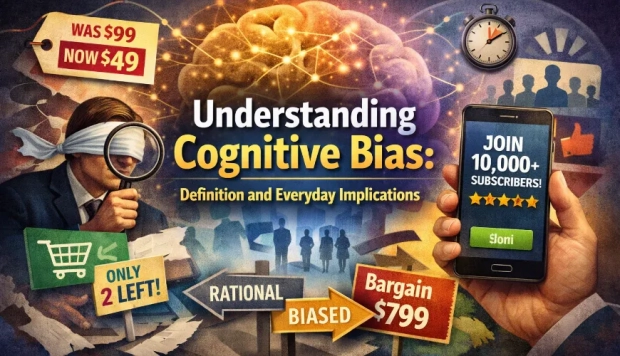Synonyms for 'for example' can transform your writing and engage readers better

Many writers, educators, and professionals have a surprisingly hard time escaping the gravitational pull of the phrase "for example." It's a linguistic crutch that feels safe and familiar. Whether you're drafting a research paper, sending a business proposal, or publishing a thought leadership blog, there's always that moment when you need to illustrate a point-and the phrase "for example" rushes to your fingertips. But in the world of high-level communication, repetition dulls impact. That's why mastering synonyms for "for example" is a skill that elevates not just your writing, but your credibility.
Why Variety Matters in Language
Language is more than just a tool for communication-it's a vehicle for persuasion, storytelling, and influence. Writers who use the same transitional phrases repeatedly risk sounding monotonous, even robotic. In contrast, those who diversify their vocabulary create texture and rhythm that hold a reader's attention. In professional settings, this nuance becomes especially important. A sales pitch, a funding proposal, or a keynote speech must engage and convince. Repetitive language undermines authority, while linguistic variety suggests mastery.
Consider this quote from author William Zinsser in On Writing Well: "Writing improves in direct ratio to the number of things we can keep out of it." That includes overused transitions like "for example."
So how can one avoid this linguistic dependency?
Exploring High-Level Alternatives to "For Example”
The English language offers a rich variety of phrases and expressions to introduce examples, each with its own subtle connotation. While "for example" simply presents an instance, other phrases might emphasize frequency, relevance, or even contrast. Choosing the right synonym isn't just about variety-it's about precision.
Here are a few elevated alternatives to "for example," each suited to different contexts:
1. Such as
One of the most natural substitutes, "such as" fits seamlessly into lists and formal documents alike. It implies that the examples given are representative but not exhaustive.
- Many industries-such as healthcare, finance, and logistics-are rapidly adopting AI-driven automation.
This phrase is especially effective in academic or technical writing where brevity and clarity are essential.
2. To illustrate
This phrase adds a storytelling dimension. It implies that what follows is not just an example, but a scenario meant to clarify and elucidate.
- To illustrate, a small business using automated email segmentation can increase open rates by over 25%.
In persuasive writing, "to illustrate" turns dry data into compelling narrative.
3. Namely
"Namely" introduces specific details that define or narrow down a previous statement. It's particularly useful when those details are crucial to understanding the main point.
- Several networking issues can compromise deliverability-namely, DNS failures, blacklists, and poor sender reputation.
The tone here is precise and authoritative, ideal for analytical writing.
4. For instance
Perhaps the closest in tone to "for example," "for instance" offers a subtle variation that helps avoid redundancy without altering the meaning.
- Spam filters can block messages from legitimate senders. For instance, emails with suspicious attachments often get flagged.
It's an easy switch that works in both formal and informal contexts.
5. Consider the case of
This phrase is especially powerful when introducing a real-world case study or anecdote. It encourages the reader to visualize a specific scenario.
- Consider the case of a startup that neglected email verification and saw its domain blacklisted within weeks.
This approach turns abstract ideas into relatable situations, especially useful in business writing and journalism.
Contextual Intelligence in Choosing Synonyms
The key to choosing the best "for example" synonym lies in understanding the context. Formal documents often benefit from more structured alternatives like "namely" or "to illustrate." Blog articles, on the other hand, may lean toward conversational phrases like "for instance" or "consider the case of." And in academic writing, where precision is paramount, "such as" remains a staple.
But lexical variety is not just a stylistic concern-it also has SEO implications. Google's algorithms increasingly reward content that demonstrates linguistic diversity and semantic richness. Overusing exact-match keywords like "for example" might diminish a page's authority signal over time. Incorporating related phrases not only improves readability but may also boost search performance by capturing a broader range of search intent variations.
The Linguistic Psychology of Examples
Why do examples matter so much in writing? Because humans are pattern-seeking creatures. Abstract ideas are harder to process without tangible reference points. According to research published in the journal Cognitive Science, readers retain more information when it's tied to a relatable example. That's why expert communicators use analogies, case studies, and illustrative scenarios so effectively.
Take the rise of email deliverability platforms like SendBridge. It's one thing to explain how DNS configuration impacts sender reputation. But it's far more compelling to say:
- Consider the case of an e-commerce brand that launched a bulk email campaign without SMTP testing. Within hours, bounce rates spiked, and Google flagged its IP address-delivering messages straight to spam folders.
This phrasing doesn't just inform-it evokes urgency and provides a miniature case study. It's an example with consequences, and that makes it memorable.
Advanced Alternatives for Specialized Writing
In high-stakes or high-level communication, it can be useful to tap into even more refined alternatives. Phrases like:
- As evidenced by
- As demonstrated in
- Exemplified by
- As an illustration
- Indicative of
These expressions suggest that the example to follow is definitive or even proof of a larger trend.
- The importance of proper email verification is exemplified by the fact that over 20% of marketing emails fail to reach the inbox, according to data from Return Path.
Such phrasing implies not just illustration, but validation-turning your example into evidence.
Real-World Example: How Language Impacts a Sales Pitch
Imagine two versions of the same sales pitch for an email automation platform. One relies exclusively on "for example,” while the other mixes in varied synonyms.
Version A:
Our platform helps with email deliverability. For example, it flags invalid addresses. For example, it tests your SMTP settings. For example, it improves sender reputation.
Version B:
Our platform helps with email deliverability. Specifically, it flags invalid addresses. In addition, it tests your SMTP settings before launch. To illustrate, clients using our platform have seen a 40% increase in inbox placement within three weeks.
The second version not only reads more fluently but also sounds more credible and persuasive. The shift in language enhances the perceived professionalism of the offering.
When Simplicity Wins
Despite this deep dive into sophisticated alternatives, it's worth noting that sometimes the simplest choice is still the best. "For example" remains a workhorse of English syntax for a reason. It's clear, concise, and universally understood. The goal is not to erase it from your vocabulary but to use it strategically-balancing familiarity with freshness.
Ultimately, effective communication is a blend of clarity and complexity. Knowing when to use a familiar phrase and when to substitute a high-level synonym reflects a writer's command of tone, audience, and purpose.
So the next time you're drafting a marketing plan, white paper, or LinkedIn post, pause before typing "for example." Ask yourself: Could this be "namely"? Or "such as"? Or perhaps, "consider the case of"?
Because in writing, as in speech, the words we choose shape how our ideas are received-and remembered.



